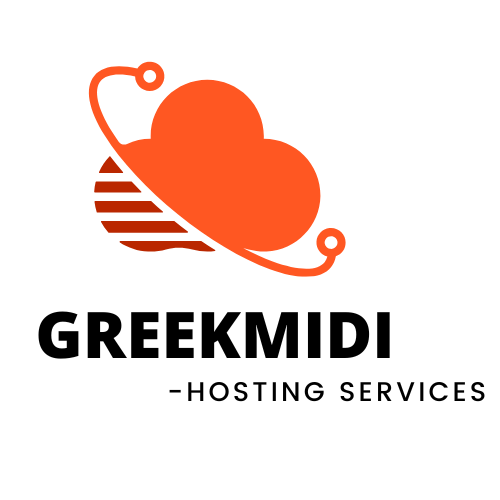
In searching for hosting companies, finding one deemed perfect may seem arbitrary – what works well for one business may not necessarily suit another website’s needs – yet any reliable hosting provider must meet some basic criteria; whether that be starting up your first small business venture, managing an extensive e-commerce store or blogging about personal matters;
key characteristics that distinguish an ideal hosting company from subpar ones.
- Guarantee of Dependable Uptime
Website uptime refers to how long its services and users remain operational and accessible online; when selecting a hosting service provider it should be given top consideration as downtime can compromise consumers’ trust while driving away revenue and traffic from your website.
An “ideal” hosting provider must offer at least 99.9% uptime guarantee to their clients. Although no provider can promise 100% uptime (even the finest services can experience temporary outages), reliable suppliers make every effort to maintain continuous operations; some high-end hosts even provide reimbursement if their uptime fails to live up to expectation.
- Rapid Rates of Loading
With digitalisation becoming ever more pervasive, speed has never been more critical. Websites taking more than three seconds to load have lower search engine rankings, higher bounce rates, and reduced conversion rates than sites which load quickly – factors which Google now favours, making performance key both for user experience and SEO purposes.
Furthermore, because data can be supplied from nearby data centres more quickly to people around the globe who access your website more rapidly than before. When shopping around for hosting companies that specialize in SSDs instead of HDDs you could also increase website speed dramatically!
- Superior Customer Service
Even with the best hosting services, issues may still arise that need resolving. An ideal host should provide prompt, informed customer support that’s both accessible and available when they’re needed via various means such as live chat, email and telephone assistance for maximum efficiency and success.
Additionally, customer service must understand your specific requirements. If you host an e-commerce website for example, then having support familiar both with technical hosting aspects as well as managing an online store would be ideal.
- Security Features
Security for websites has never been more essential. Hackers pose the constant risk of data loss and customer details being breached while hackers, malware and other cyberthreats threaten reputational damage that cannot be reversed.
An ideal hosting company must offer comprehensive security measures including firewall security, regular backups, DDoS protection and SSL certificates to protect data transfer securely. They should implement cutting-edge protection methods while safeguarding against unwanted access.
Premium hosts often offer managed security services like vulnerability patching and proactive monitoring to give website owners peace of mind that their websites will be properly looked after. With such measures in place, it will give visitors to your website the peace of mind to know they will always remain protected from malicious cyberattacks.
- Adaptability and Scalability
A reliable host should offer flexible plans that let you quickly expand resources without interruptions or outages; scaleability allows it to grow with you whether that means increasing storage or bandwidth or moving up the scale for VPS or dedicated servers.
Since cloud hosting can scale more quickly and effectively than traditional types, look for companies offering them. When promotions, product releases or seasonal sales surge suddenly in traffic spikes, cloud hosting provides instantaneous resources adjustments in response to spikes.
- User-Friendly Control Panel
Running and maintaining your website should be simple and effortless, which requires having an accessible control panel such as Plesk or cPanel that makes managing domains, emails, databases, websites etc easy for you to manage. A simplified dashboard ensures you can focus on improving its content rather than getting bogged down with technical details that might slow things down.
Hosts may provide one-click installs of popular platforms like WordPress, Joomla and Drupal which makes setting up and managing websites simpler for non-technical people.
- Extensive Backups
Data loss can be catastrophic; without regular backups in place, recovering from accidents (or cyber attacks) after they happen can be expensive and time consuming. The top hosting providers make sure your website is automatically backed up daily, weekly, or even hourly depending on what works for your requirements.
Restoring backups should also be easy using your hosting control panel, making the host’s off-site backup storage facilities vital in case any emergencies threaten the primary servers and cause them to shut down unexpectedly.
- Transparent Pricing with No Hidden Costs
A reliable hosting company should have transparent prices with no unexpected increases or hidden costs after your first payment cycle has completed. Renewal rates, add-on services, and any premium features (such as more bandwidth or assistance services ) should all be clearly communicated so you know exactly what is included when signing the agreement.
Find hosts offering money-back guarantees or free trials so that you can safely explore their services before fully committing. By doing this, you can test out features and customer service offered by each hosting provider before making an important decision.
- Sustainability in the Environment
Its Sustainable hosting techniques have grown ever more prominent as both individuals and companies become increasingly environmentally aware. Green hosting – which uses carbon offset schemes, renewable energy sources, and environmentally-friendly data centres – has grown increasingly popular. Hosting providers also utilize sustainable hosting practices more and more frequently.
An ideal hosting provider places sustainability first and strives to reduce their environmental impact through energy-saving gear or carbon neutral hosting solutions.
- Advanced Features for Developers
A great hosting provider should give developers and tech-savvy website owners freedom and cutting-edge tools that meet the requirements for development work – for instance SSH access support, adaptable server setup options and compatibility with PHP, Python Ruby Node.js to name just some features.
Many hosting providers also include version control connections (like Git) to handle code updates and staging environments for testing updates before pushing them live – essential features when running complex websites and developing custom applications.









Overall, While no single hosting company meets everyone’s individual requirements perfectly, prioritizing certain characteristics may help you choose one that fulfills them effectively – regardless if your needs involve hosting an ecommerce store with high traffic volume, or personal blog. With reliable uptime, quick speeds, robust security measures, and exceptional customer support services – ideal hosting providers allow website managers to focus on growing their websites while they take care of technicalities like uptime.
Copyright @ 2024 . Greekmidi. All Right Reserved.
